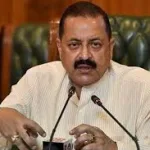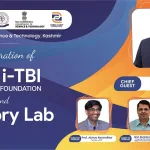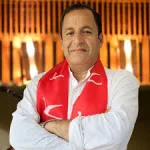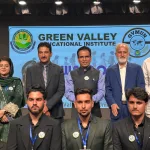Narendra Modi’s tenure as Prime Minister of Bharat has witnessed a robust engagement with the Islamic world, resulting in strengthened international relations and significant diplomatic achievements. This analysis focuses on PM Modi’s efforts, both at home and abroad, with a particular emphasis on his dedication to advancing the interests of the Muslim community.
PM Modi’s foreign policy approach has been instrumental in enhancing India’s geopolitical standing, particularly through diplomatic initiatives in South Asia, Central Asia, and the Middle East. Notably, his engagements with Iran, exemplified by the Chabahar Port and the International North-South Transport Corridor, have bolstered connectivity and secured strategic access to Afghanistan.
In the Middle East, PM Modi has actively pursued economic partnerships with Muslim-majority nations, acknowledging the importance of the region in India’s oil imports. His efforts have resulted in landmark agreements, such as the Comprehensive Economic Partnership Agreement (CEPA) with the United Arab Emirates, fostering bilateral trade and collaboration in non-traditional sectors.
The success of PM Modi’s diplomatic outreach is underscored by the recognition he has received from various Muslim-majority countries. Awards such as the ‘Order of Zayed’ from the UAE, the King Hamad Order of the Renaissance from Bahrain, and the Rule of Nishan Izzuddeen from the Maldives highlight the positive impact of Modi’s leadership on India’s relations with the Muslim world.
Leaders from the Muslim World League, including Secretary-General Sheikh Mohammed bin Abdulkarim Al-Issa, have commended PM Modi’s inclusive perspective towards growth. These acknowledgments underscore the shared commitment to combating extremism and fostering understanding among diverse faiths and cultures.
While PM Modi’s foreign policy successes are evident, there exists a complex interplay of real politics and ideology domestically, leading to perceived contradictions. However, this analysis emphasizes the undeniable positive impact of PM Modi’s diplomatic achievements on India’s global standing.
PM Narendra Modi’s diplomatic triumphs have not only strengthened India’s foreign relations but have also earned him accolades from Muslim-majority nations. His commitment to economic partnerships, security cooperation, and diplomatic relationship-building has yielded remarkable results. PM Modi’s recognition through prestigious awards underscores his success as a global diplomat, contributing to peace, prosperity, and understanding in our diverse world.
In addition to his successful foreign policy engagements, Prime Minister Narendra Modi has undertaken various initiatives to benefit the Muslim community within India, highlighting the country’s commitment to secularism and inclusive development. As the leader of a diverse and pluralistic nation, Modi’s government has implemented policies aimed at uplifting all sections of society, irrespective of religious affiliations. Schemes like the Pradhan Mantri Jan Vikas Karyakram (PMJVK) reflect the government’s dedication to addressing the socio-economic needs of minority communities, ensuring their holistic development.
The push for skill development and education through programs like Skill India and the emphasis on inclusive growth underscore PM Modi’s vision for a united and harmonious India, where every citizen, regardless of their background, can thrive and contribute to the nation’s progress. This commitment to internal inclusivity complements his successful diplomacy on the global stage, presenting a comprehensive approach to fostering unity and development at home and abroad.
The party consistently acknowledges the need to build trust and confidence among the Muslim community, recognizing the impact of historical narratives on perceptions over the past seven decades. Despite the challenges, there is optimism within the party, particularly with the evolving mindset of the new generation and the increasing influence of women in shaping their own opinions. This positive development indicates a shift towards a more nuanced and merit-based evaluation of the BJP, allowing individuals to assess the party on its policies, actions, and performance.
The party’s commitment to reaching out to every section of society, including Muslims, and fostering a climate of openness and dialogue demonstrates a proactive approach to bridge gaps and dispel misconceptions. As the younger generation and women engage in a more informed evaluation, it opens avenues for constructive conversations and a shared vision of inclusive development for all citizens.
Prime Minister Narendra Modi, emphasizing the enhanced security for Muslim women following the government’s ban on instant triple talaq, has urged BJP leaders to connect with them during the upcoming Raksha Bandhan festival. The Muslim Women (Protection of Rights on Marriage) Bill, passed in 2019, criminalized the practice of instant triple talaq, underlining PM Modi’s commitment to empowering Muslim women. In one of the ‘Mann ki Baat’ address, he celebrated the significant shift wherein over 4,000 Muslim women would undertake Haj without a ‘mehram’ this year, citing it as a substantial transformation facilitated by his government’s progressive changes in the Haj policy over the years.
In addition to his endeavors in Gujarat, PM Modi has forged a meaningful connection with the Dargah Ajmer Sharif. The construction of 188 toilets has notably benefited devotees, particularly women, while extensive beautification efforts, including the creation of the “Silver Katahra” at Astana Sharif, a new fountain, and the renovation of the Nizam Gate and Akbari Masjid, have enhanced the spiritual site. Cleaning machines now dot the “jhalra” at the iconic palace, and a substantial water tank with a capacity of three lakh litres has been erected.
Furthermore, for the past six years, PM Modi has consistently offered a “chadar” at the dargah of the Sufi saint Hazrat Khwaja Moinuddin Chishti in Ajmer Sharif, underscoring his deep respect and reverence for all deities and Sufi saints.
In examining PM Modi’s foreign policy, a noteworthy aspect is the commendable relations established with the Muslim world. Countries such as Bahrain, the UAE, Palestine, Saudi Arabia, and Afghanistan have bestowed their highest honors upon him. The personal friendships forged with the crown princes of the UAE and Saudi Arabia underscore the strength of diplomatic ties. Memorable moments include PM Modi’s special visit to the grand mosque in the UAE and his respectful homage paid at Bahadur Shah Zafar’s mazar. Present-day Muslims, particularly the younger generation, express discontent with traditional vote-bank politics that often failed to deliver tangible benefits.
The community seeks prosperity and opportunities, signaling a shift away from outdated political practices. In this evolving India, driven by aspirations and inclusivity, PM Modi has initiated positive changes. The collective responsibility lies in supporting and nurturing the progress of this great nation that has bestowed us with abundant opportunities.
PM Modi, during a meeting with a delegation of prominent Muslims, expressed optimism that the Indian Muslim community would benefit from the government’s welfare schemes. The delegation, including notable figures like Shia cleric Maulana Kalbe Jawwad, international Islamic affairs expert Kamar Agha, and Shahid Siddiqui, conveyed congratulations on the Prime Minister’s successful visit to Saudi Arabia. The delegation highlighted the positive reception of PM Modi’s development agenda in West Asia, Central Asia, and North Africa, particularly among the youth who seek strong relations with India.
Commending PM Modi’s commitment to development and his successful implementation record, the members of the delegation praised his focus on education, with a special emphasis on girl child education. In response, PM Modi expressed gratitude for the delegation’s support and reiterated his dedication to fostering development, particularly in the realm of education.
(Author is Professor and the Chairman of Centre for Narendra Modi Studies (CNMS), New Delhi. Email: [email protected]. Former Head & Group Editor, Roznama Rashtriya Sahara (National Urdu Daily) & Aalami Sahara TV (Urdu News Channel). Former Media Advisor, Aligarh Muslim University, Aligarh. Email: [email protected])





